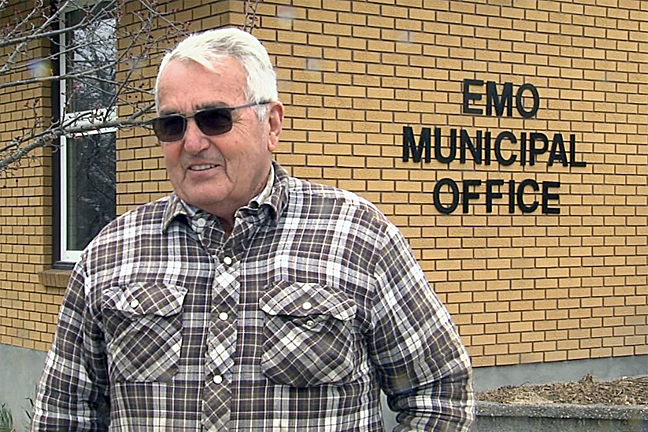EMO — The Canadian Constitution Foundation is wading into the mayor and Township of Emo’s dispute of an Ontario Human Rights Tribunal decision.
The Toronto-based foundation said in a news release this week it “will argue the Tribunal failed to consider Mayor (Harold) McQuaker’s Charter-protected right to freedom of expression and failed to apply the legal framework for balancing expression and the right to equality.”
The township and mayor are challenging a 2024 tribunal ruling that Emo council’s 2020 decision not to declare June as Pride Month and display a rainbow Pride flag was discriminatory. The tribunal ordered the township to pay $10,000 and McQuaker $5,000 to Borderland Pride and ordered McQuaker to take a course in human rights.
No date has been set yet for a judicial review of the tribunal’s ruling, in which the foundation is one of at least three accepted intervenors.
Superior Court Justice Danial Newton granted intervenor status last month to Fierté Canada Pride and Justice for Children and Youth in addition to the foundation.
“This case is important because the Human Rights Tribunal failed to consider the freedom of expression (rights) of the mayor of Emo while township council was discussing whether or not to make the proclamation for Pride Month,” Canadian Constitution Foundation counsel Josh Dehaas said Wednesday from Toronto.
The tribunal’s finding that the mayor and council were being discriminatory doesn’t “come anywhere close to meeting the test that the Supreme Court has laid down for limiting speech because it might be hateful or discriminatory,” Dehaas added.
What McQuaker said “might be offensive to a lot of people, but it’s not something that can be limited while still having freedom of speech,” Dehaas said.
Fort Frances attorney Douglas Judson, a director of Borderland Pride, said he hasn’t seen the foundation’s argument yet but there are “a few issues” it needs to address.
“The first one is that if you actually look at the underlying tribunal decision, the respondent municipality and the three members of council actually didn’t assert any concern with their freedom of expression and the impact that complying with the Human Rights Code might have on their freedom of expression, so it wasn’t actually an issue that was before the Human Rights Tribunal to begin with, and this is a review of that underlying proceeding.
“So I’m not actually sure that the freedom of expression issues are particularly relevant within the four corners of this judicial review, and that’s something they’re going to have to overcome.”
As well, Judson said, “freedom of expression is not an absolute right in Canada. It is limited by Section 1 of the Charter. It can be limited by law.
“And in this case we’re not even really talking about the freedom of expression of individual members of council. We’re talking about the obligations in law of the municipality to provide services free from discrimination.
“When members of council are elected and become part of the municipal decision making body, they have to make their decisions in accordance with the laws that govern the municipality.
“It’s not just about their personal opinions or beliefs or convictions. It’s about what the law requires them to do, and I think that you will see in Canadian law a long history of courts saying that your public interest duties as a public office holder override what your personal convictions might be or your personal views.
“And when you are voting as a member of council, your votes carry consequence for the municipality and its obligations in law under the Human Rights Code, but also in other statutes.”
Dehaas said while the Supreme Court of Canada has said there are limits to the Canadian Charter of Rights and Freedom’s guarantee of free speech, McQuaker’s remarks in 2020 were well within those limits.
“The whole point of free speech is that people can say things that are unpopular, that people find offensive,” Dehaas said.
“Offensive speech is protected and can’t be outlawed just because it’s offensive to some people, because if governments can decide that some speech is offensive, then they can outlaw pretty much any speech and you don’t have any free speech left.”
